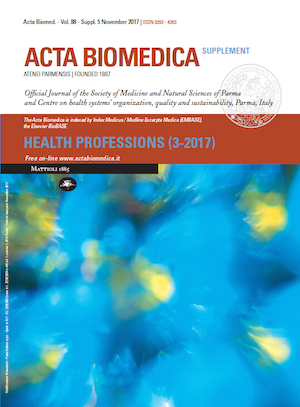Expressive writing. A tool to help health workers. Research project on the benefits of expressive writing
Keywords:
coping, emotions, expressive writing, working satisfactionAbstract
Background and Aims: Numerous studies in the international literature hold that expressive writing is a useful tool to take care of the person as a whole. It gives voice to emotions, moods and intimate thoughts of patients, as well as caregivers and family members. The reference model is based on Pennebaker’s theory (2004), which posits that expressing our deeper thoughts and feelings can result in significant health benefits in the short and long term. Studies over the past 25 years have shown that expressive writing, that is, simple writing on deeper thoughts and emotional sensations, is a useful tool to alleviate both physical and psychological symptoms. This research seeks to ascertain whether and how expressive writing has an impact on work satisfaction, coping strategies, and relational communication satisfaction of health practitioners. Methods: a comparison was made between the expressive writing and neutral writing of two randomized groups of health care professionals. A group of 66 healthcare professionals participated in this study. They were evaluated pre- and post-intervention using several scales and an ad hoc questionnaire, with one-month follow-up. Results: After analyzing the texts, as in Pennebaker’s studies, there was a reduction of words with negative emotion in the course of writing sessions. Discussion: Expressive writing has a positive impact on adaptive coping strategies and work relational communication satisfaction. It also can facilitate the clarification and solution of various problems, increase cognitive abilities, and promote social interactions.Downloads
Published
Issue
Section
License
This is an Open Access article distributed under the terms of the Creative Commons Attribution License (https://creativecommons.org/licenses/by-nc/4.0) which permits unrestricted use, distribution, and reproduction in any medium, provided the original work is properly cited.
Transfer of Copyright and Permission to Reproduce Parts of Published Papers.
Authors retain the copyright for their published work. No formal permission will be required to reproduce parts (tables or illustrations) of published papers, provided the source is quoted appropriately and reproduction has no commercial intent. Reproductions with commercial intent will require written permission and payment of royalties.







